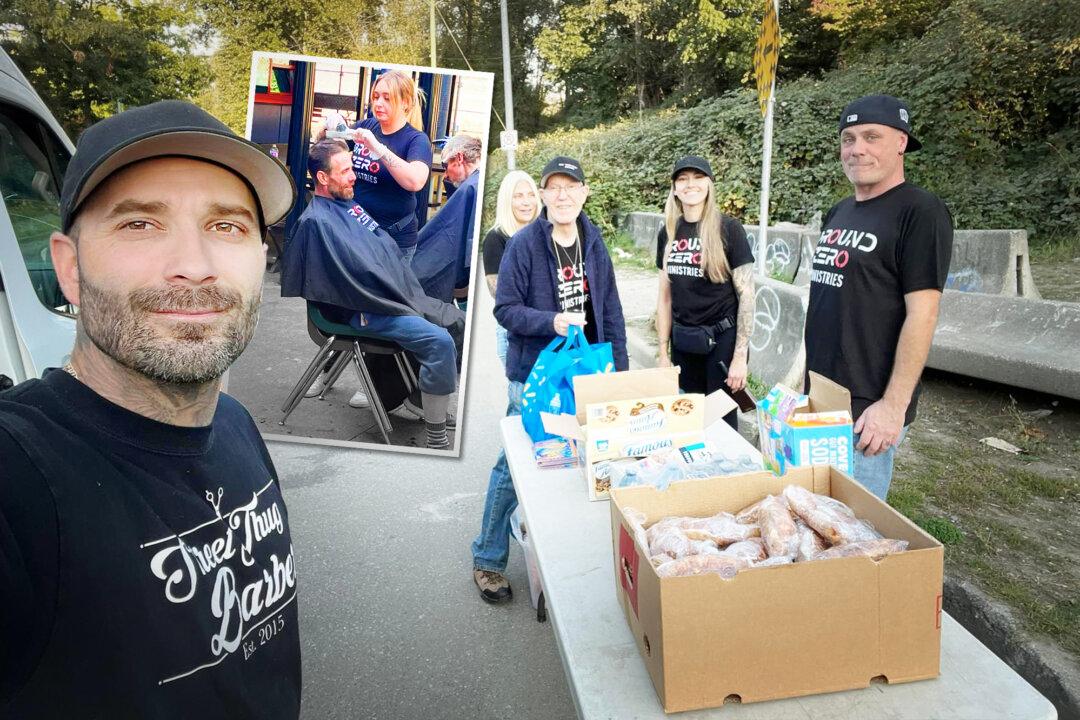The Peardonville overpass in Abbotsford, B.C., is nearly invisible. With its overgrown infrastructure and abandoned exits littered with shopping carts and trash, it’s entirely forgettable to the passing eye. Equally invisible are the homeless people who stay here, living (and often dying or overdosing) in tents in the thicket of weeds.
This and other places like it in the Fraser Valley community—like South Fraser Way overpass, Clearbrook, or the Hub Pharmacy alleyway—are where Joseph Sikora conducts his boots-on-the-ground ministry to help people suffering from addiction, which includes, among myriad other things, giving free haircuts to the homeless.





